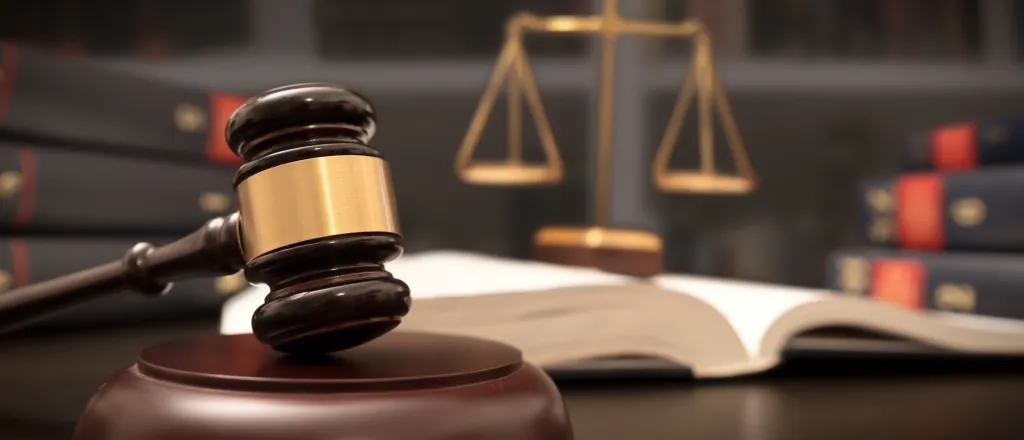
Judge sides with youth in Montana climate change trial, finds two laws unconstitutional
This story originally appeared in the Daily Montanan.
(Colorado Newsline) The state of Montana’s failure to consider greenhouse gas emissions from energy and mining projects violates the state constitution because it does not protect Montanans’ right to a clean and healthful environment and the state’s natural resources from unreasonable depletion, a judge ruled Monday in a victory for the 16 youth plaintiffs who sued the state.
Lewis and Clark County District Court Judge Kathy Seeley sided with the young plaintiffs in her decision in the Held v. Montana trial, striking down as unconstitutional the so-called “limitation” to the Montana Environmental Policy Act (MEPA), which was amended by the legislature this year, as well as another portion of law surrounding greenhouse gas emissions that was changed this past session.
Seeley permanently enjoined the 2023 version of the MEPA limitation, passed via House Bill 971 more than halfway through the session, as well as a portion of Senate Bill 557, saying both were unconstitutional and the latter “removes the only preventative, equitable relief available to the public and MEPA litigants.”
“Plaintiffs have a fundamental right to a clean and healthful environment, which includes climate as part of the environmental life support system,” Seeley wrote in her decision.
The Held vs. Montana case was the first case challenging state and national climate and energy policies to make it to trial in the U.S., and is now the first in which the plaintiffs, 16 Montana youth now ages 5 to 22, were victorious.
Julia Olson, the chief legal counsel and executive director for Our Children’s Trust, the group behind the lawsuit, said called Seeley’s decision “a sweeping win” for Montana, the youth plaintiffs, and the climate, and said more court victories would be coming.
“Today, for the first time in U.S. history, a court ruled on the merits of a case that the government violated the constitutional rights of children through laws and actions that promote fossil fuels, ignore climate change laws, and disproportionately imperil young people,” Olson said.
“The Honorable Judge Kathy Seeley declared Montana’s fossil fuel-promoting laws unconstitutional and enjoined their implementation. As fires rage in the West, fueled by fossil fuel pollution, today’s ruling in Montana is a game-changer that marks a turning point in this generation’s effort to save the planet from the devastating effects of human-caused climate change.”
Seeley wrote in her order that the MEPA limitation, which prohibits the state from considering greenhouse gas emissions and climate impacts when deciding whether to approve permits for energy and mining projects, violated Montanans’ rights under the 1972 state constitution.
The constitution says that they have a right to a clean and healthful environment and that each Montanan “shall maintain and improve a clean and healthful environment in Montana for present and future generations.”
Seeley also wrote that the state constitution commands the legislature to “provide for the administration and enforcement” to meet the state’s obligation to maintain and improve the environment and provide remedies to prevent its unreasonable depletion and degradation.
“Montana’s climate, environment, and natural resources are unconstitutionally degraded and depleted due to the current atmospheric concentration of GHGs and climate change,” Seeley wrote.
She said that MEPA makes clear the state should use “all practicable means” to fulfill those constitutional responsibilities, and that the law’s limitation, in place since 2011 and tweaked by lawmakers this session in response to a Yellowstone County judge’s order regarding emissions at a plant in Laurel, is failing to meet those constitutional duties.
Seeley wrote, rather, that the MEPA limitation “conflicts with the very purpose of MEPA” in trying to meet those obligations.
“By prohibiting consideration of climate change, (green house gas) emissions, and how additional GHG emissions will contribute to climate change or be consistent with the Montana Constitution, the MEPA Limitation violates Plaintiffs’ right to a clean and healthful environment and is facially unconstitutional,” Seeley wrote in her order.
Further, she said, the state did not put forward any evidence there was a compelling governmental interest in having the limitation in place, and Seeley noted there was undisputed testimony that the state could evaluate greenhouse gas emissions and their impacts, as well as consider switching more energy sources to renewable energy.
She also found a section of law created by the legislature this year through Senate Bill 557 to be unconstitutional. That new portion of law said that a challenge to an agency’s permitting decision if it did not involve a greenhouse gas emissions evaluation could not vacate, void or delay a permit unless Congress added carbon dioxide as a regulated pollutant.
Both that clause of Senate Bill 557 and House Bill 971 were created by the Republican supermajority in direct response to Judge Michael Moses’ ruling that a NorthWestern Energy power generating station in Laurel could not proceed because the Department of Environmental Quality had failed to consider emissions impacts from the plant. He later vacated the order after the legislature’s moves.
Seeley wrote the new law is unconstitutional “because it eliminates MEPA litigants’ remedies that prevent irreversible degradation of the environment, and it fails to further a compelling state interest.”
The Attorney General’s Office and Governor’s Office did not immediately respond to a request for comment Monday morning.
The state has indicated previously it would appeal the decision if it did not win the case. Last week, an attorney with Our Children’s Trust told the Daily Montanan it intended to seek attorneys’ fees and costs should Seeley side with the plaintiffs.
This is a developing news story and will be updated.
Daily Montanan is part of States Newsroom, a network of news bureaus supported by grants and a coalition of donors as a 501c(3) public charity. Daily Montanan maintains editorial independence. Contact Editor Darrell Ehrlick for questions: info@dailymontanan.com. Follow Daily Montanan on Facebook and Twitter.
Colorado Newsline is part of States Newsroom, a network of news bureaus supported by grants and a coalition of donors as a 501c(3) public charity. Colorado Newsline maintains editorial independence. Contact Editor Quentin Young for questions: info@coloradonewsline.com. Follow Colorado Newsline on Facebook and Twitter.
















